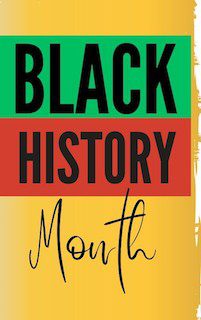
So often when we think about February, we think about Valentine’s Day. But it isn’t just about that; it’s also a time when communities across the United States unite to honor the rich tapestry of Black heritage and the profound contributions made by African Americans to the nation’s history. Black History Month is more than just a designation on the calendar; it’s an important reminder of the struggles, triumphs, and ongoing journey toward equity and justice, showing the importance of respecting and recognizing Black History Month.
Above all, Black History Month serves as a beacon of remembrance – a steadfast acknowledgment of the resilience and fortitude demonstrated by generations of Black individuals in the face of adversity. From slavery, segregation, the civil rights movement, and beyond, African Americans have navigated a turbulent path marked by systemic oppression and injustice. Yet, amidst these challenges, they have shaped a legacy of strength, courage, and perseverance. By commemorating Black History Month, we pay tribute to those who paved the way for progress, ensuring their sacrifices haven’t been forgotten.
Additionally, Black History Month offers a vital opportunity for education and enlightenment. Throughout the month, schools, community organizations, and cultural institutions engage in activities and initiatives to raise awareness about Black Americans’ often-overlooked contributions across all facets of society. Black innovators, visionaries, and trailblazers have left an indelible mark on every aspect of American life, from literature and art to science, politics, and beyond. By amplifying these narratives, we broaden our understanding of history and foster a more inclusive and equitable society.
Additionally, Black History Month emphasizes dialogue and reflection. It prompts individuals of all backgrounds to engage in critical conversations about race, identity, and social justice. By confronting uncomfortable truths and grappling with the complexities of the past, we can work toward building a more just and fair future. Black History Month invites us to confront the legacy of racism and discrimination while celebrating the resilience and achievements of Black communities. It challenges us to confront persisting injustices and actively strive for meaningful change.
Black History Month serves as a source of inspiration and empowerment, particularly for young people. By highlighting the achievements of Black leaders, activists, and innovators, we provide today’s youth with role models and mentors who exemplify excellence and determination. Representation matters, and Black History Month offers a platform to showcase African Americans’ diverse talents and accomplishments across all walks of life. When young people see themselves reflected in history books, museums, and media, it instills a sense of pride and possibility, fueling their aspirations and ambitions.
Finally, Black History Month serves as a call to action – a reminder that the work of justice and equality is far from finished. While we celebrate past achievements, we must also confront the issues that still persist today. From disparities in education and healthcare to systemic racism in law enforcement and beyond, the struggle for racial equity continues. Black History Month challenges us to stand in solidarity with marginalized communities, to amplify their voices, and to actively work toward dismantling the structures of oppression that perpetuate inequality.
In summary, this month is a time of reflection, education, and celebration. It honors Black Americans’ resilience, legacy, and progress while inspiring us to confront the challenges ahead. By recognizing the contributions of African Americans to our nation’s history and culture, we reaffirm our commitment to justice, equality, and solidarity. As we commemorate Black History Month, let us reflect on the past and rededicate ourselves to building a more inclusive and equitable future for all.
Ahndrea Blue is president and CEO of the Making A Difference Foundation. Contact her at (253) 212-2778 and ahndrea@themadfseattle.org.

